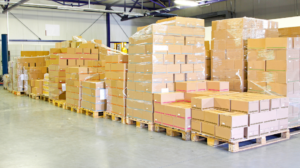Global alliance to take on plastic waste in the environment
The Alliance to End Plastic Waste, an organization made up of almost thirty companies from around the globe, commits $1.5 billion to tackle plastic waste in the environment.
Full Article:
From improvements in living standards and health, to nutrition, connectivity, and convenience, plastics have provided a myriad of critical benefits to individuals and communities world-wide. Unfortunately, nine million tons of plastic enters the world’s oceans from coastal regions every year. Growing awareness of the crisis is spurring a new global alliance to get out front with immediate solutions.
The Alliance to End Plastic Waste, a growing organization made up of nearly thirty companies from North and South America, Europe, Asia, Southeast Asia, Africa, and the Middle East has committed $1.0 billion, with a goal of investing $1.5 billion over the next five years to help end plastic waste in the environment.
The Alliance is comprised of companies that make plastic, use plastics in their products and packaging, process plastics and recycle plastic waste. By bringing together the entire plastics value chain, the Alliance will apply the technical and engineering expertise of each sector, the collective resources and reach of companies from around the world, and insights from those that operate in the regions where the challenge is greatest. The new group says that listening to others and collaborating with governments, especially those in the affected regions, and with innovators, investors, local communities, and environmental and conservation groups already working on this challenge will be a critical part of the Alliance’s approach.
“Everyone agrees that plastic waste does not belong in our oceans or anywhere in the environment. This is a complex and serious global challenge that calls for swift action and strong leadership. This new alliance is the most comprehensive effort to date to end plastic waste in the environment.” – David Taylor, Chairman of the Board, President and CEO of Procter & Gamble
Part of the challenge that the Alliance faces in reducing plastic waste is the necessity of hitting the problem at the source. For example, sixty percent of ocean plastic can be sourced to five countries in Southeast Asia. Nearly 80 percent of all plastic waste begins as litter that ends up traveling from land to major rivers, which then lead to our oceans.
The Alliance’s initial collaborations are aimed at tackling the problem from a variety of angles:
Partnering with cities to design integrated waste management systems in large urban areas where infrastructure is lacking, especially those along rivers which transport vast amounts of unmanaged plastic waste from land to the ocean. This work will include engaging local governments and stakeholders, and generate economically sustainable and replicable models that can be applied across multiple cities and regions. The Alliance will pursue partnerships with cities located in high plastic leakage areas.
Funding The Incubator Network by Circulate Capital to develop and promote technologies, business models and entrepreneurs that prevent ocean plastic waste and improve waste management and recycling, with the intention of creating a pipeline of projects for investment, with an initial focus on Southeast Asia.
Developing an open source, science-based global information project to support waste management projects globally with reliable data collection, metrics, standards, and methodologies to help governments, companies, and investors focus on and accelerate actions to stop plastic waste from entering the environment. The Alliance will explore opportunities to partner with leading academic institutions and other organizations already involved in similar types of data collection.
Creating a capacity building collaboration with intergovernmental organizations such as the United Nations to conduct joint workshops and trainings for government officials and community-based leaders to help them identify and pursue the most effective and locally-relevant solutions in the highest priority areas.
Supporting Renew Oceans to aid localized investment and engagement. The program is designed to capture plastic waste before it reaches the ocean from the ten major rivers shown to carry the vast majority of land-based waste to the ocean. The initial work will support the Renew Ganga project, which has also received support from the National Geographic Society.
Using a four-part strategy, the Alliance wants to achieve results as quickly as possible. By investing in infrastructure development, the Alliance can manage efforts to keep plastic waste from entering oceans and the environment. Improved infrastructures will manage waste through collection, sorting, and recycling, particularly in parts of the world where waste management systems are limited, and where plastic waste is most significant.
Innovation will help develop and bring scale to new technologies that allow more types of plastic to be recycled, reused, and repurposed. It will allow for the design of products that use smaller volumes of plastic. Innovation will create value from post-use plastics.
Additionally, clean-up of areas where plastic waste is concentrated, especially in conduits such as rivers that carry waste to the sea, is an ongoing piece of the puzzle. Once plastic waste enters the ocean, it becomes much more difficult to retrieve. Since ocean plastics continue to mount, supporting beach clean up is vital. And the fourth prong, education and engagement of communities, governments, and businesses, is crucial in the fight against unmanaged plastic waste.
“While our effort will be global, the Alliance can have the greatest impact on the problem by focusing on the parts of the world, where the challenge is greatest; and by sharing solutions and best practices so that these efforts can be amplified and scaled-up around the world.” – Peter Bakker, President and CEO of The World Business Council For Sustainable Development President
The Alliance recognizes that addressing plastic waste in the environment requires the participation and long-term commitment of consumers, manufacturers, technology developers, the finance community, and governments around the planet. With concentrated effort, the plastic dilemma is solvable.



